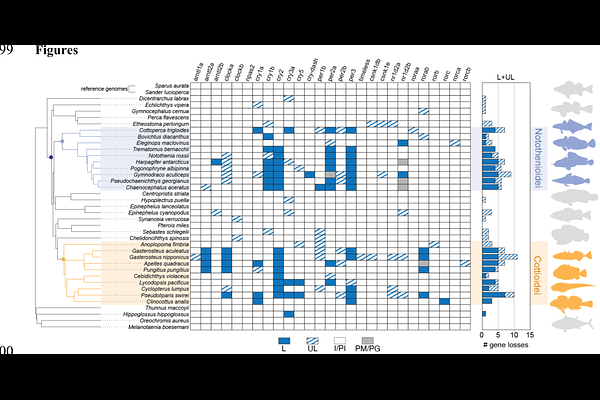Convergent latitudinal erosion of circadian systems in a rapidly diversifying order of fishes

Convergent latitudinal erosion of circadian systems in a rapidly diversifying order of fishes
Wright, D. B.; Zhang, Y.; Daane, J. M.
AbstractBiological clocks enable organisms to anticipate cyclical environmental changes. Some habitats, such as those at high latitudes or deep sea, experience seasonally diminished or absent diel cues upon which species entrain their circadian rhythms. Fishes of the order Perciformes have rapidly diversified and adapted to these arrhythmic ecosystems, raising the possibility that evolutionary modifications to their circadian biology contributes to their success as one of the most species-rich orders of vertebrates. Here, we used a comparative genomic approach to investigate patterns of biological clock gene loss and circadian rhythms across 33 perciform and six outgroup species. We found both widespread and lineage-specific loss and relaxed selection in core clock genes, particularly in the convergently evolving polar and deep-sea Notothenioidei and Cottioidei suborders. This trend of circadian gene loss was significantly correlated with latitude, with higher-latitude species showing greater loss. Whether these losses and relaxed selection lead to changes in circadian rhythms is unknown for most perciforms. To address this, we performed metabolic phenotyping on three notothenioid species and found no circadian metabolic oscillations during the late austral fall, including in the sub-Antarctic Eleginops maclovinus, sister to the Antarctic adaptive radiation. We propose that diminished reliance on endogenous biological clocks may be an adaptive feature that facilitates the survival and diversification of perciform fishes in polar and arrhythmic environments.